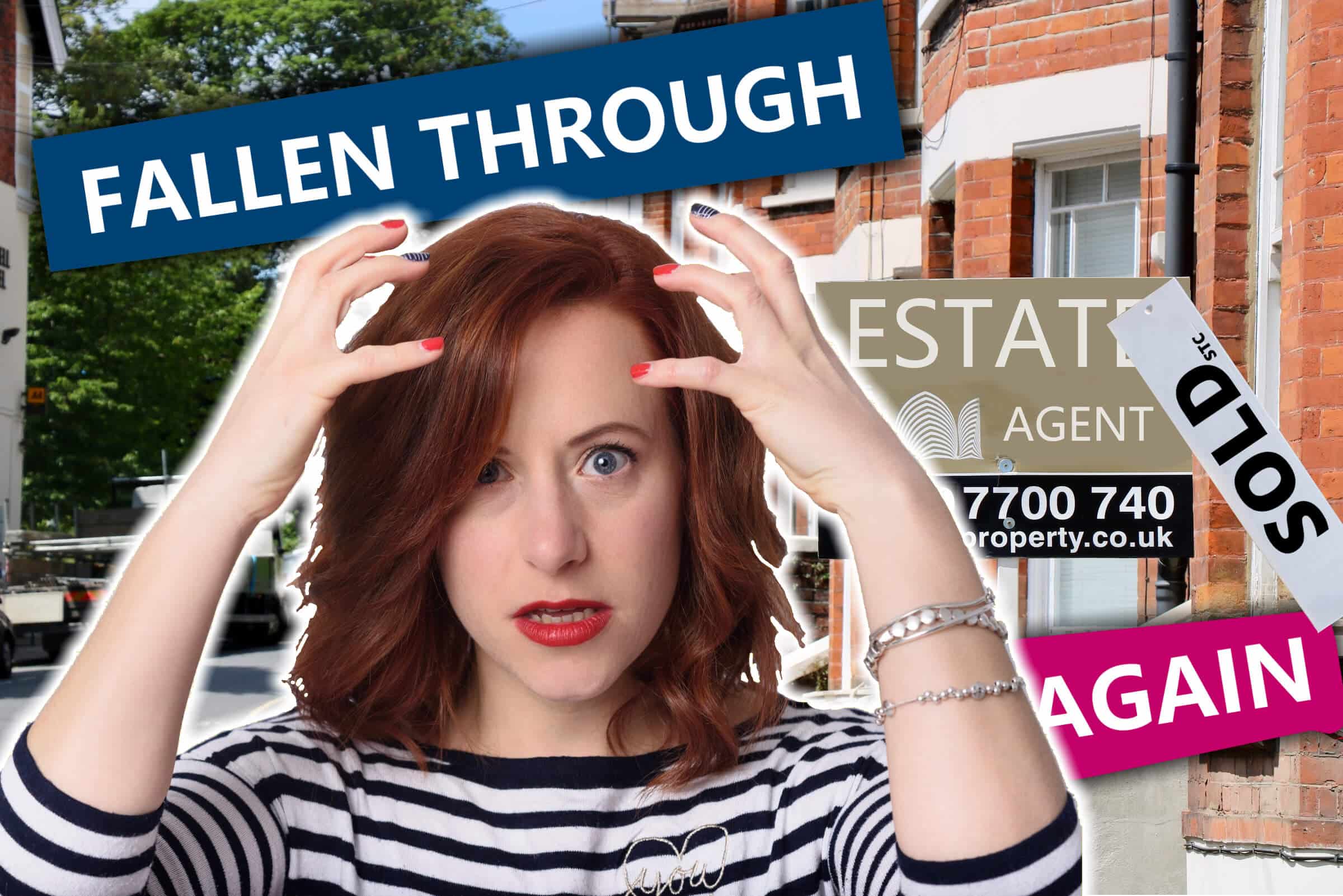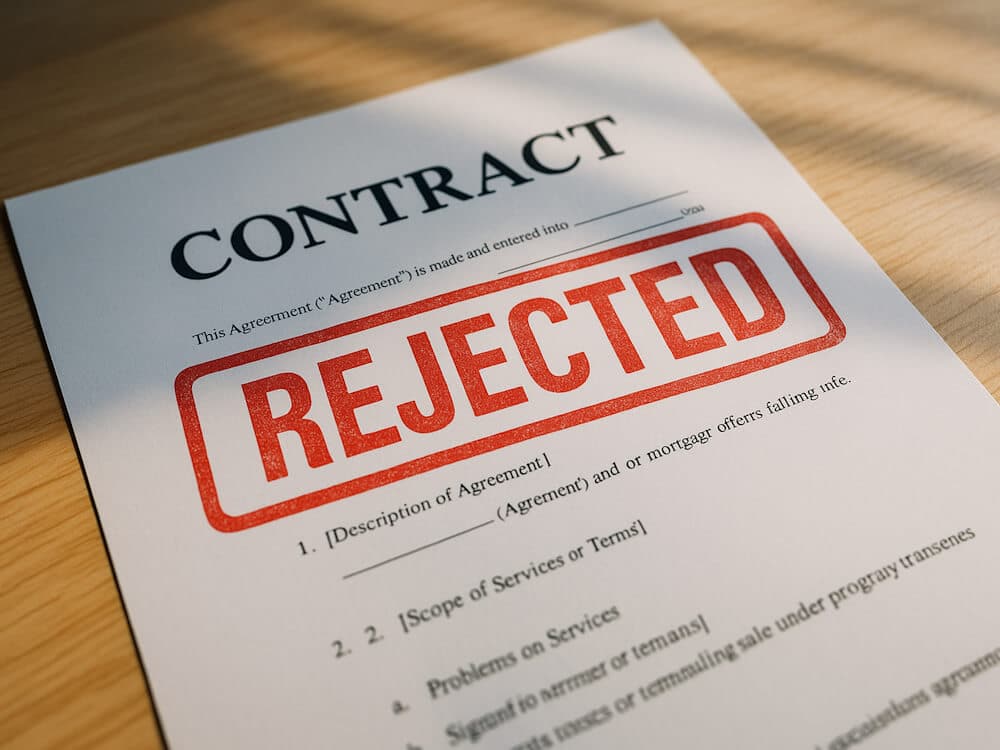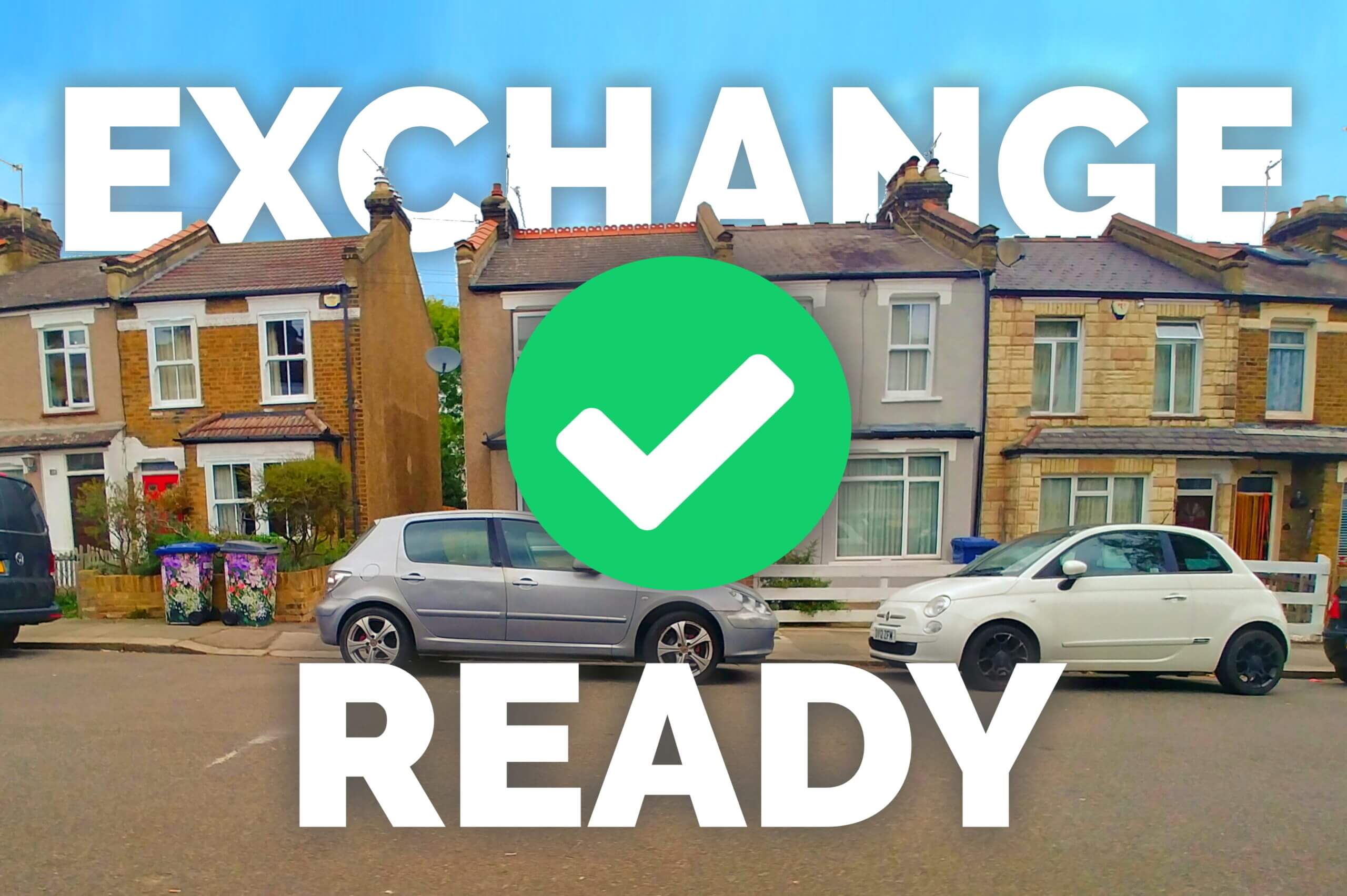House Sale Fallen Through?
Request a free & no-obligation auction sale price estimate
- Cost effective
No upfront fee & sell for free options - Quick
Sell your property in as little as 28 days - Secure & reliable
Legally binding sale on auction day - Fair & transparent
Sold to the highest bidder
For your peace of mind we are a member of The Property Ombudsman


Selling by auction is quick and easy. Request a no-obligation auction sale estimate for your house or flat.
- Reliable
- Fast
- Secure
Interested to learn more about selling your property by auction?
Talk to our team on 0800 862 0206
Selling a property can be a stressful experience – and even under stable market conditions, around one in three house sales in England and Wales fail to reach completion. A major factor behind this high fall-through rate is the traditional private treaty method used by estate agents, where offers are not legally binding until contracts are formally exchanged. This leaves room for buyers to pull out at any stage during the process, often causing disappointment, financial loss, and significant delays.
By contrast, property auctions operate under a different set of rules, where the sale becomes legally binding as soon as the hammer falls.
This article is designed to support homeowners who are currently selling their property through an estate agent and are either facing prolonged delays or have just received the unwelcome news that their sale has collapsed. You’ll find practical guidance on what to do next, how to keep your sale on track, and alternative selling methods that could offer more certainty – such as selling by auction.

Why do sales fall through?
Spot the early signs
What can you do?
Keep your sale on track
Alternative sale methods
FAQ’s
Next steps
Estate agency sale V’s auction sale
When selling through an estate agent, there’s always a risk that your house sale could fall through. Accepting an offer and instructing solicitors is only the beginning of the process. Until contracts are formally exchanged – after the survey has been completed, legal enquiries resolved, and the buyer has paid their 10% deposit – the buyer can withdraw from the purchase or attempt to renegotiate the price at any time.
By contrast, selling at auction provides far greater certainty. On the day of the auction, contracts are legally exchanged immediately, and the buyer is required to pay a 10% deposit there and then. At that point, the sale is legally binding – sold really does mean sold. The buyer cannot back out or reduce their offer once the hammer falls.
Selling through an estate agent offers no certainties. A Which? study from January 2025 found that one in three property sales fall through before completion when using an estate agent.
Request an auction sale estimate
If you know the address of the property you’re thinking about selling, the easiest way to get an auction sale price and cost estimate is by requesting a free estimate online.
The reason why so many sales fall through is because offers are not legally binding with private treaty (estate agency) sales. The system is different in other countries and despite some talk of changes to the process and the introduction of voluntary reservation agreements, the process for selling houses in England and Wales remains inefficient and frustrating for many home sellers.

Selling a property through an estate agent can be a frustratingly uncertain process. Even when a buyer makes an offer and it’s accepted, they are under no legal obligation to proceed until contracts are formally exchanged. This means that – even if both parties have signed the contract and the buyer has transferred a 10% deposit to their solicitor – the agreement isn’t legally binding until both solicitors confirm the formal exchange of contracts.
Until that point, sellers are left in limbo, anxiously waiting and hoping that nothing derails the process. Unfortunately, sales can collapse at any stage, sometimes months after an offer has been agreed. The most common reasons for a failed sale include:
🔲 Survey Results – Many buyers reconsider their purchase if the survey uncovers issues, such as structural problems or the need for major repairs.
TIP: Be proactive – disclosing known defects early can save time and reduce the risk of late-stage surprises.
🔲 Broken Chains – Most buyers are part of a chain, meaning their purchase depends on selling their own property first. If one link in the chain collapses, it can bring the whole transaction to a halt.
TIP: If you receive multiple offers, consider the strength of the buyer’s position—a first-time buyer or someone with no chain is often a safer bet than a higher offer from a buyer in a long chain.
🔲 Mortgage Issues – A buyer may encounter problems securing a mortgage further down the line, even if they initially seem financially prepared.
TIP: Ask for proof of a mortgage agreement in principle before accepting an offer to avoid unnecessary delays or disappointment.
🔲 Delays with Solicitors – While it’s easy to blame solicitors for delays, conveyancing is a complex legal process with many moving parts. Solicitors must ensure all the legal checks are completed thoroughly to avoid any future disputes.
TIP: Choose an experienced conveyancer and keep communication open to help avoid unnecessary hold-ups.
🔲 Change of Circumstances – Life happens. Job losses, relocations, relationship breakdowns or health issues can force a buyer to withdraw, even if everything seemed fine initially.
🔲 Change of Mind – Buying a home is an emotional decision. Sometimes buyers simply change their minds. What seemed like the perfect move a few months ago may no longer feel right.
🔲 Gazundering – In a buyer’s market, it’s not uncommon for buyers to reduce their offer just before exchange, knowing the seller is under pressure. While some reductions are justified, others are tactical.
TIP: Be clear on your bottom line from the start, and try to remain calm and pragmatic if this situation arises.
🔲 Market Conditions – Broader economic concerns (such as the effects of Brexit, inflation, or the threat of a recession) can make buyers nervous. Locally, if similar homes are flooding the market, competition can weaken demand.
TIP: In these conditions, consider adjusting your price or exploring alternative methods of sale to stand out.
One of the most disheartening aspects is the timing: a sale can collapse after four or five months of waiting – or even longer. We’ve heard from sellers who’ve waited up to a year for a transaction that ultimately never completed. To make matters worse, estate agents typically stop marketing the property once it’s under offer, meaning other potential buyers may have been turned away and told the home was already sold.
Here are a few key ways to stay on top of your sale and reduce the risk of nasty surprises:
🔲 Stay in regular contact with your solicitor
While estate agents can be helpful, your solicitor is usually better placed to give you an accurate picture of the legal progress. If your solicitor hasn’t heard from the buyer’s solicitor in a while, that could be a red flag. A lack of communication often signals that the transaction has stalled or that the buyer may be losing interest.
🔲 Understand the conveyancing process
The more you know about what’s supposed to happen and when, the easier it will be to spot when something’s going wrong. Take time to read up on the stages of property conveyancing – there are plenty of blogs, articles, and affordable guides available that can help demystify the process. Being informed will allow you to ask the right questions and make better decisions throughout.
🔲 Ask for direct contact with the buyer
If your sale isn’t moving forward and you’re not getting clear answers, consider asking your estate agent whether the buyer would be willing to speak with you directly. A simple conversation can sometimes cut through delays and misunderstandings. If the buyer isn’t open to this, it may be a sign they’re not as committed as you’d hoped – at which point it might be wiser to start looking for a new buyer.
Sometimes, the collapse of a sale is made clear by a formal notification – but in many cases, it’s far more subtle. For example, your buyer’s buyer may have pulled out, leaving your buyer scrambling to resell their own home – without telling anyone. Or perhaps your buyer’s property has a legal or structural issue that’s making it difficult for their buyer to secure a mortgage.
If you’re unaware of these developments, you could be left waiting for months with no real prospect of a successful completion.
That’s why it’s so important to maintain communication both up and down the chain. The more visibility you have into your buyer’s circumstances – and their ability to proceed – the better your chances of anticipating problems and taking action before too much time is lost.
Don’t panic. A collapsed sale is incredibly frustrating – especially after weeks or months of waiting – but try to remember that you’re not alone. Unfortunately, it happens to property sellers across England and Wales more often than you might think.
What you do next will depend on your individual circumstances. If you’re relying on the sale of your current home to fund the purchase of your next property, then the fallout may affect not just you, but also the sellers of the home you’re planning to buy. Naturally, they’ll be disappointed by the setback – but don’t forget that they have a vested interest in keeping the deal alive too.
Most sellers will be sympathetic to your situation, especially if you’ve already shown commitment and enthusiasm for their property. As long as you’re actively working to secure a new buyer and keeping them informed, they may be willing to give you a little extra time before they consider putting their property back on the market. After all, finding another buyer means they’re back to square one too.
TIP: One of the most common reactions from estate agents when a sale falls through is to recommend a price reduction to quickly attract new interest. While this may sometimes be appropriate – particularly if your home has been on the market for a while – it’s not always the best first move. If you were achieving viewings and strong interest before, consider re-marketing your property at the original asking price for a few weeks to gauge fresh interest. There’s often no need to reduce the price straight away.
In the next section, we’ll explore practical steps you can take to recover from a failed house sale, from finding a new buyer quickly to considering alternative methods of sale that offer more certainty.
If you decide to continue selling your home through an estate agent after a sale has fallen through, it’s natural to feel a heightened sense of urgency to find a new buyer. However, it’s important not to rush into accepting the first offer that comes along. Take a few days to assess your options and reflect on what caused the previous sale to collapse. Was it down to the buyer, the property, or perhaps a combination of both?
Here are some practical steps to help minimise the risk of another sale falling through and to improve your chances of a smooth, successful transaction:
🔲 Ask for a small deposit
One of the simplest ways to gauge whether a buyer is genuinely committed is to ask them to pay a small, non-refundable deposit (for example, £500) to your solicitor. In return, you agree on a clear deadline to exchange contracts at the agreed price. This helps identify serious buyers and filters out time-wasters.
This isn’t a radical idea – new-build developers do it all the time through “reservation” or “holding” fees, often in the thousands. If your buyer resists paying a modest deposit, it may be worth questioning how committed they really are.
🔲 Verify your buyer’s finances
A reputable estate agent should assess a buyer’s “proceedability” – their ability to complete the purchase – before recommending them. Still, it’s perfectly reasonable to ask for proof of funds, such as a bank statement for the deposit and a mortgage agreement in principle. If the buyer is uncomfortable sharing these directly with you, ask your estate agent to forward them securely to your solicitor.
🔲 Prioritise chain-free buyers
Chains increase the risk of delays and fall-throughs. First-time buyers, cash buyers, or those who have already sold their property are far less likely to encounter complications. If you’re choosing between two offers, a chain-free buyer – even at a slightly lower price – might be the safer and faster option.
🔲 Encourage early surveys and searches
Most renegotiations or dropouts occur after the buyer receives their survey report. Since almost every survey finds something, it’s better that these issues surface early in the process.
Encourage your buyer to commission the survey and order searches (local authority, drainage, environmental) as early as possible. Knowing the buyer has already invested £300+ in these steps is a good sign of commitment.
🔲 Set clear deadlines
Having agreed dates for key milestones – such as completion of the buyer’s survey, return of legal enquiries, and final exchange—keeps everyone focused and accountable. These don’t have to be rigid, but they provide useful structure and help maintain momentum.
🔲 Monitor progress closely
Stay informed about what’s happening behind the scenes. If your buyer has had multiple mortgage rejections or their solicitor is unresponsive, it could be a sign of trouble ahead.
Following up regularly and checking against agreed deadlines can make a big difference in keeping the sale on track.
🔲 Use a group email thread
Setting up a group email including both sets of solicitors, the estate agent, and (where appropriate) the buyer can help streamline communication. Weekly progress updates can prevent delays caused by missed messages or unanswered queries.
🔲 Consider a voluntary reservation agreement
These agreements aim to provide more certainty by discouraging either party from accepting higher offers elsewhere. While they tend to favour buyers more than sellers, they can offer some reassurance in certain situations.
🔲 Switch estate agents if necessary
If your previous agent didn’t keep up momentum, failed to follow up with the buyer or simply lacked communication, don’t hesitate to move on. Good estate agents often have dedicated sales progressors – staff who focus solely on moving sales through to completion. That support can make all the difference.
🔲 Think about a contract race
If you’re in a hurry and have multiple interested parties, you could allow more than one buyer to progress their purchase at the same time. This creates a “contract race”, where the first to exchange contracts secures the property. While it’s more demanding on your solicitor (and may incur extra fees), it can be an effective way to speed things up and secure the best buyer.
🔲 Always have a backup plan
Don’t rely on a single buyer. Keeping alternative options in mind – or even staying in touch with previously interested parties – can give you leverage during negotiations and confidence if the current sale starts to wobble. A backup plan means you’re never left starting from scratch.
By taking these proactive steps, you can approach your second attempt at selling with greater confidence and reduce the risk of another sale falling apart. You’ve already been through the process once – now you’re better equipped to navigate it more strategically.
Some properties simply aren’t well-suited to the traditional private treaty method of sale offered by estate agents. In fact, it often takes a failed transaction to highlight that another approach might be more effective. For instance, homes in need of renovation or with legal or structural complications are often better suited to alternative methods like auctions or direct sales.
If you’re looking for a more reliable, stress-free path to selling, here are some tried-and-tested alternatives worth considering:
🔲 Auction Sale
One of the most dependable routes to a guaranteed sale is the auction. At auction, once the gavel falls, the buyer is legally bound to the purchase: contracts are exchanged immediately, and a 10% deposit is paid on the day. Completion usually follows within 28 days.
Unlike a traditional sale, where you rely on just one buyer, auction brings multiple interested parties together to compete—often driving the price up. Any property can be sold at auction, but this method is especially well suited to homes requiring modernisation, with these often achieving higher prices than they would on the open market via an estate agent.
For properties in good condition, modern auction offer a hybrid approach. Importantly, the property remains actively marketed right up until contracts are exchanged, reducing the risk of a fall-through.
🔲 Direct Sale to a Homebuyer Company
If speed and certainty are your top priorities, selling directly to a reputable homebuyer company could be a viable option. These are usually cash buyers, so the sale is chain-free and much faster—often completing in a matter of days or weeks. Crucially, you’re dealing with a professional, trade buyer who won’t be put off by survey findings or minor defects.
However, caution is advised: not all companies operate in the same way. Some act as brokers rather than direct buyers, which can waste your time. A simple red flag is if you’re asked to sign paperwork before seeing a formal offer – direct buyers typically won’t ask you to sign anything upfront (apart from the legal contract at the point of sale, which your solicitor will handle).
🔲 Bridging Loan
This is a niche solution and not one to take lightly. Bridging loans are high-interest, short-term loans that allow you to proceed with the purchase of a new property even if your current sale has fallen through. The loan is repaid once your property eventually sells.
While this can be useful in certain urgent situations – such as preventing a chain from collapsing – it carries significant risk. Interest rates and fees can be very high, and if your home doesn’t sell quickly, the costs can spiral. Always seek independent financial advice before considering a bridging loan.
🔲 Wait or Rent
If you’re not under immediate pressure to sell, it might be worth pausing. Taking time to improve your property’s condition or presentation could help secure a better price later. Alternatively, you could consider letting the property out to generate rental income while you wait for more favourable market conditions.
A collapsed sale doesn’t have to mean starting from scratch. In fact, it might be the ideal time to explore whether a more suitable method of sale could offer you the reliability and peace of mind you’re looking for. Whether that means going to auction, selling to a direct buyer, or pausing to re-strategise, there are options – and you’re not alone in needing to consider them.
We’ve provided answers to some of your frequently asked questions relating to house sales falling through.
No, sales can’t fall through after exchange of contracts. Once you have exchanged contracts you have entered into a legally binding contract. Nether the buyer or the seller can back out of the sale.
Sales can fall through at any stage up to the point of exchange of contracts.
Most solicitors will charge for an “aborted sale” to cover their time and expenses. But usually won’t charge the full amount as they would if the sale had successfully completed.
There’s no statistic on record, but the it’s fair to say that if a sale is going to fall through, it’s more likely to happen after the survey than at any other point in the process.
If you have arranged a mortgage for your onward move and your sale falls through you will usually have some time before your mortgage expires. Mortgage offers are typically valid for 3 months, but in some cases valid for up to 6 months.
If you feel you’ve been treated unfairly by the buyer or your estate agent, you may have some grounds for redress, in which case it’s worth talking to Citizens Advice or discussing with your solicitor.
Contact us to find out if your property is suitable for auction Request a free pre-auction appraisal or feel free to call us on 0800 862 0206 – we’ll be happy to help.
Experiencing delays?
Find out how to spot the early signs of your house sale falling through.
Find an auctioneer
Need help choosing a local property auctioneer? Call 0800 862 0206 or send us an enquiry online.
🔍 Also see
💬 Auction talk








